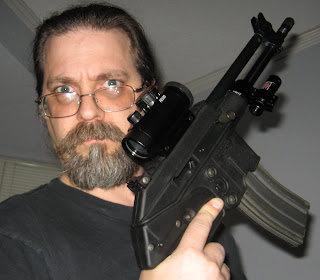Congradulations Colonel Crandall
 Somewhat long overdue President Bush just awarded LTC Bruce "Snakeshit" Crandall the Congressional Medal of Honor. Who's Bruce Crandall you ask. Well if you watched the movie We Were Soldiers that detailed the 7th Cavalry's battle with the North Vietnamese Army in the Ia Drang Valley in Vietnam. It was the first major encouter between the US and the NVA. Here is the citation from the actual award:
Somewhat long overdue President Bush just awarded LTC Bruce "Snakeshit" Crandall the Congressional Medal of Honor. Who's Bruce Crandall you ask. Well if you watched the movie We Were Soldiers that detailed the 7th Cavalry's battle with the North Vietnamese Army in the Ia Drang Valley in Vietnam. It was the first major encouter between the US and the NVA. Here is the citation from the actual award:For conspicuous gallantry and intrepidity at the risk of his life above and beyond the call of duty:
Major Bruce P. Crandall distinguished himself by extraordinary heroism as a Flight Commander in the Republic of Vietnam, while serving with Company A, 229th Assault Helicopter Battalion, 1st Cavalry Division (Airmobile). On 14 November 1965, his flight of sixteen helicopters was lifting troops for a search and destroy mission from Plei Me, Vietnam, to Landing Zone X-Ray in the la Drang Valley. On the fourth troop lift, the airlift began to take enemy fire, and by the time the aircraft had refueled and returned for the next troop lift, the enemy had Landing Zone X-Ray targeted. As Major Crandall and the first eight helicopters landed to discharge troops on his fifth troop lift, his unarmed helicopter came under such intense enemy fire that the ground commander ordered the second flight of eight aircraft to abort their mission. As Major Crandall flew back to Plei Me, his base of operations, he determined that the ground commander of the besieged infantry batallion desperately needed more ammunition. Major Crandall then decided to adjust his base of operations to Artillery Firebase Falcon in order to shorten the flight distance to deliver ammunition and evacuate wounded soldiers. While medical evacuation was not his mission, he immediately sought volunteers and with complete disregard for his own personal safety, led the two aircraft to Landing Zone X-Ray. Despite the fact that the landing zone was still under relentless enemy fire, Major Crandall landed and proceeded to supervise the loading of seriously wounded soldiers aboard his aircraft. Major Crandall's voluntary decision to land under the most extreme fire instilled in the other pilots the will and spirit to continue to land their own aircraft, and in the ground forces the realization that they would be resupplied and that friendly wounded would be promptly evacuated. This greatly enhanced morale and the will to fight at a critical time. After his first medical evacuation, Major Crandall continued to fly into and out of the landing zone throughout the day and into the evening. That day he completed a total of 22 flights, most under intense enemy fire, retiring from the battlefield only after all possible service had been rendered to the Infantry battalion. His actions provided critical resupply of ammunition and evacuation of the wounded. Major Crandall's daring acts of bravery and courage in the face of an overwhelming and determined enemy are in keeping with the highest traditions of the military service and reflect great credit upon himself, his unit, and the United States Army.

This man's bravery is not his only defining characteristic. When the issue of the medal of honor was first raised, he insisted that he be removed from consideration until his wing-man, Major Ed Freedman was awarded the medal.
If you click the title link you will find an interesting description of the action in the Ia Drang for which Crandall received this award.
If you do not know, there is no higher military award than the medal of honor.
Labels: military, Military History







|
<< Home